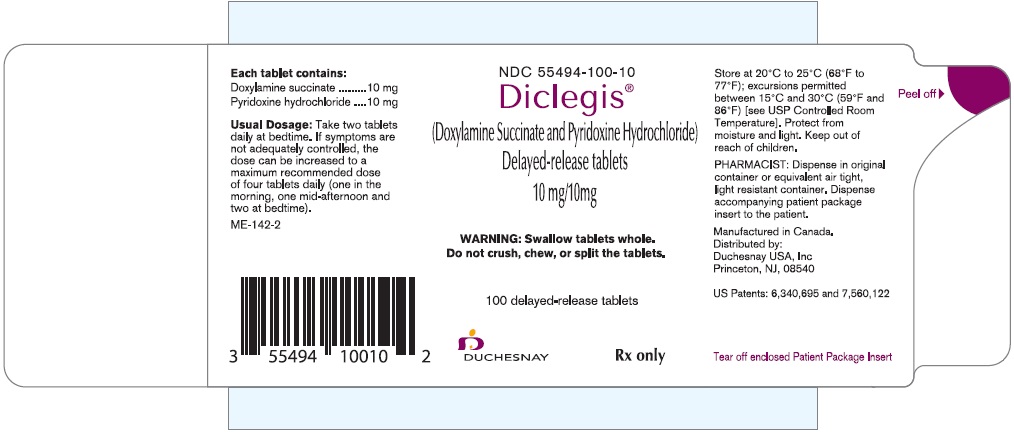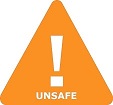
Diclegis | Doxylamine Succinate And Pyridoxine Hydrochloride Tablet, Delayed Release while Breastfeeding
What is Diclegis | Doxylamine Succinate And Pyridoxine Hydrochloride Tablet, Delayed Release ?
Can I use Diclegis | Doxylamine Succinate And Pyridoxine Hydrochloride Tablet, Delayed Release while breastfeeding?

Diclegis | Doxylamine Succinate And Pyridoxine Hydrochloride Tablet, Delayed Release Breastfeeding Analsys
Doxylamine succinate while Breastfeeding
UnsafeCAS Number: 469-21-6
It is a first generation antihistamine drug which is related to ethanolamine, with sedative and anti-muscarinic effects. It has been used as hypnotic and for vomiting relief. At latest update, relevant published data on excretion into breast milk were not found. Pharmacokinetic characteristics would favour that it may be excreted into breast milk in significant amount. On a telephone survey, 10% of infants whose mothers were on several types of antihistamine medication have suffered of colicky pain and irritability that disappeared without treatment. For both treatment of mothers and infants would be safer the use of tested antihistamine medication without sedative effect, especially in prematures and infants younger than 1 month of age. Whenever used while breastfeeding, the use of the lower effective dose and for the shortest time as possible is recommended. Follow-up for somnolence and feeding troubles should be warranted. Bed-sharing is not recommended when the mother is on this medication.
Pyridoxine hydrochloride while Breastfeeding
SafeCAS Number: 58-56-0

Concentration of vitamin B6 in the breast milk is directly related to the amount present in diet with the possibility of a high increment by an excessive consumption through the diet. Daily allowance of vitamin B6 ranges from 2 to 3 mg. A balanced and varied diet is enough without a need for extra supplementation with this vitamin. Vitamin B6 deficiency is extremely rare since it is widely distributed in many foods. In those cases where supplementation is required, it is recommended not to exceed 40 mg a-day. There are controversial data on the capacity of a high dose of Pyridoxine to inhibit the secretion of Prolactin and suppress the milk production. The American Academy of Pediatrics rates it as usually compatible with breastfeeding.
Diclegis | Doxylamine Succinate And Pyridoxine Hydrochloride Tablet, Delayed Release Breastfeeding Analsys - 2
Doxylamine succinate while Breastfeeding
CAS Number: 469-21-6
Small occasional doses of doxylamine would not be expected to cause any adverse effects in breastfed infants. Larger doses or more prolonged use may cause drowsiness and other effects in the infant or decrease the milk supply, particularly in combination with a sympathomimetic such as pseudoephedrine or before lactation is well established.
I am nursing mother and I have already used Diclegis | Doxylamine Succinate And Pyridoxine Hydrochloride Tablet, Delayed Release, what should I do?
If you observer abnormal behavior or any other health issue in infant then you should immediately call 911 or contact other contact other emergency service provider in your area otherwise closely monitor the baby and inform your doctor about your Diclegis | Doxylamine Succinate And Pyridoxine Hydrochloride Tablet, Delayed Release usage and time interval of breastfeeding.
My doctor has prescribed me Diclegis | Doxylamine Succinate And Pyridoxine Hydrochloride Tablet, Delayed Release, what should I do?
If your doctor knows that you are breastfeeding mother and still prescribes Diclegis | Doxylamine Succinate And Pyridoxine Hydrochloride Tablet, Delayed Release then there must be good reason for that as Diclegis | Doxylamine Succinate And Pyridoxine Hydrochloride Tablet, Delayed Release is considered unsafe, It usually happens when doctor finds that overall advantage of taking
If I am using Diclegis | Doxylamine Succinate And Pyridoxine Hydrochloride Tablet, Delayed Release, will my baby need extra monitoring?
Yes, Extra monitoring is required if mother is using Diclegis | Doxylamine Succinate And Pyridoxine Hydrochloride Tablet, Delayed Release and breastfeeding as it is considered unsafe for baby.
Who can I talk to if I have questions about usage of Diclegis | Doxylamine Succinate And Pyridoxine Hydrochloride Tablet, Delayed Release in breastfeeding?
US
National Womens Health and Breastfeeding Helpline: 800-994-9662 (TDD 888-220-5446) 9 a.m. and 6 p.m. ET, Monday through Friday
UK
National Breastfeeding Helpline: 0300-100-0212 9.30am to 9.30pm, daily
Association of Breastfeeding Mothers: 0300-330-5453
La Leche League: 0345-120-2918
The Breastfeeding Network supporter line in Bengali and Sylheti: 0300-456-2421
National Childbirth Trust (NCT): 0300-330-0700
Australia
National Breastfeeding Helpline: 1800-686-268 24 hours a day, 7 days a week
Canada
Telehealth Ontario for breastfeeding: 1-866-797-0000 24 hours a day, 7 days a week
